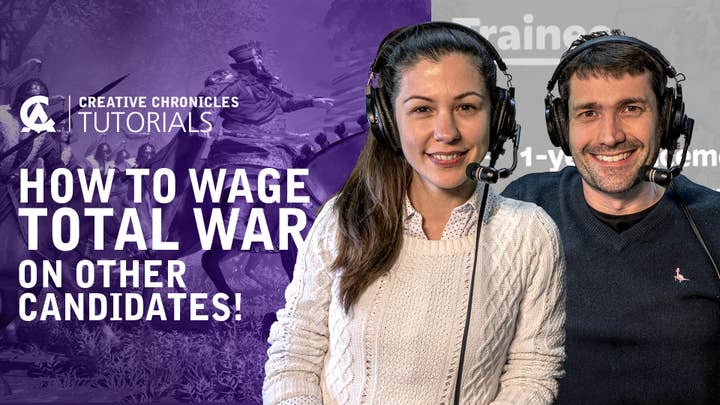Creative Chronicles: How to become a programmer
The GI.biz Academy partners with Creative Assembly to publish its Creative Chronicles video series, today focusing on becoming a programmer
Creative Assembly's educational series, Creative Chronicles, provides in-depth tutorials, insights into game development and key information that aims to educate and inspire future talent interested in building games. Previously covered topics include AI behaviour and a balancing post-mortem of Total War Three Kingdoms. You can find the list of all the previously published videos on this page.
In this video, Creative Assembly's senior AI programmer, Duygu Cakmak, and engine director, Chris Budd, look at how to become a programmer in the games industry.
Have you been wondering how to get into the industry, or you've been applying for junior programming positions and not had much luck? In this talk, CA discuss what key skills you need to show, how you can best present your skills in a portfolio and your application, as well as what to avoid. There are simple changes you can make in your application which will help you stand out, and ensure the hiring managers don't miss the important information.
CA also looks at the next stage of the application process: what happens when you get an interview and what might a programming test involve?
This talk is for anyone looking at taking that step into the industry and how to stand out from a crowd of other candidates.
CA's programming experts have also collated a list of useful resources, which you can find below. They also recommend #Include C++, a group who are working to improve inclusion and diversity in the C++ community. #Include have a discord server and channels for learners to ask any questions.
Books:
- Game Programming Patterns by Robert Nystrom
- Game AI Pro 1-2-3 by Steve Rabin
- Behavioral Mathematics for Game AI by Dave Mark
- Artificial Intelligence and Games by Georgios N. Yannakakis and Julian Togelius
- The Audio Programming Book by R Boulanger
- Computer Animation: Algorithms and Techniques by Rick Parent
- Game Engine Architecture by Jason Gregory
- Real Time Rendering by Tomas Akenine-Möller, Eric Haines, Naty Hoffman
- GPU Gems - All Volumes by various authors
- Game Programming Gems - All Volumes by various authors
- Ray Tracing Gems by Eric Haines, Tomas Akenine-Möller
- Numerical Recipes by William H. Press, Saul A. Teukolsky, et al
- Physically Based Rendering: From Theory to Implementation by Matt Pharr, Greg Humphreys, Wenzel Jakob
- Continuous Delivery: Reliable Software Releases through Build, Test, and Deployment Automation by Jez Humble and David Farley
- The Design of Everyday Things by Donald A. Norman
Blogs:
- The Orange Duck by Daniel Holden
- Where to Get Started Learning C++ and What Resources to Use by Shafik Yaghmour
- C0DE517E
- Microsoft Developer Blogs: DirectX, C++ and PIX
The GamesIndustry.biz Academy guides to working in games cover a wide range of topics, from how to approach mental health issues in the workplace to what every studio head can do to stop their business from failing. Our guides to finding a job in the games industry cover sectors such as journalism, PR, design, testing and art.

